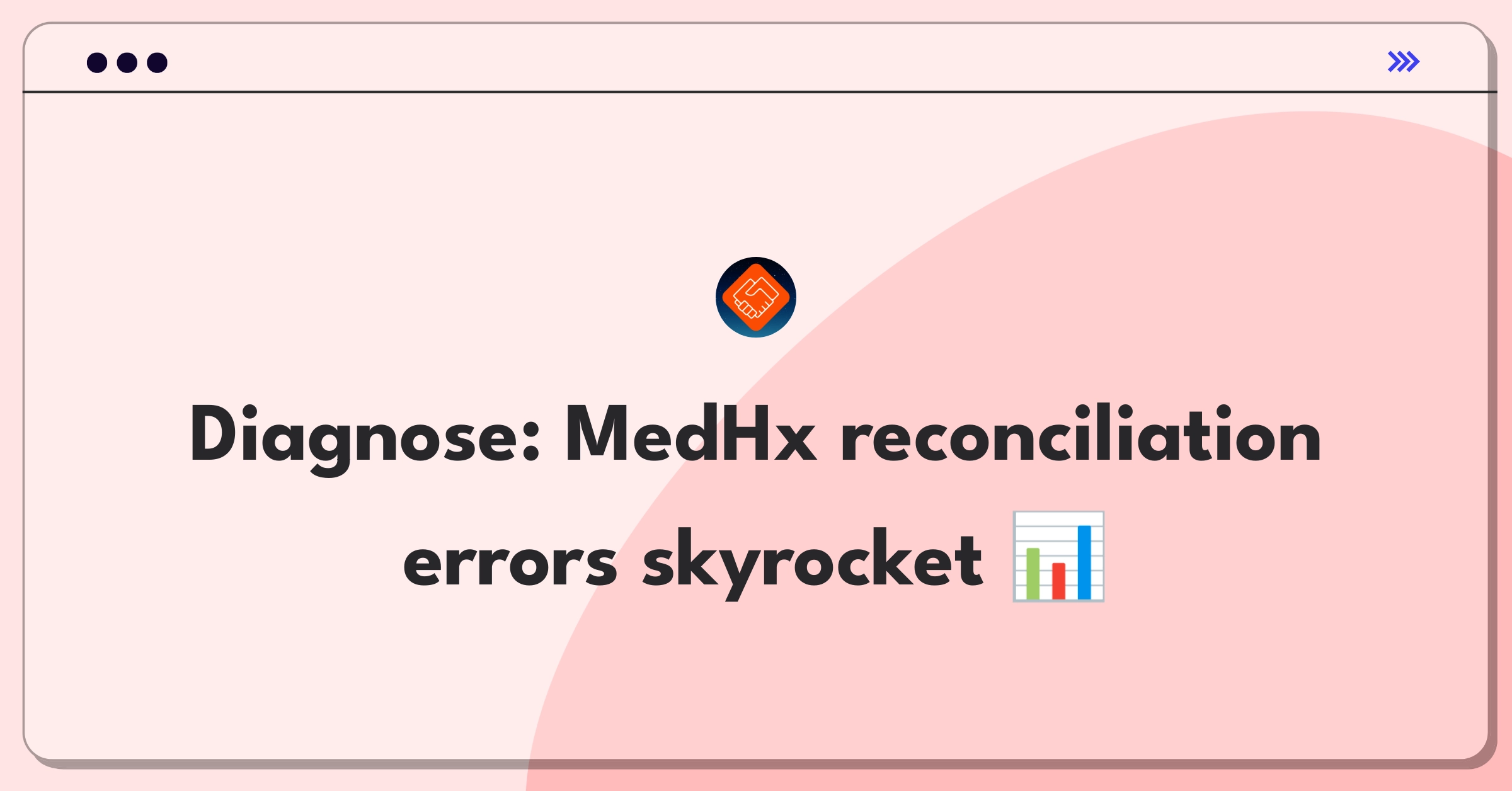Introduction
The increased error rate in medication history reconciliation within DrFirst's MedHx platform during the last quarter is a critical issue that demands immediate attention. This analysis will systematically identify, validate, and address the root cause while considering both short-term fixes and long-term strategic implications.
I'll approach this problem by first clarifying the context, then ruling out external factors before diving deep into the product ecosystem, metric breakdown, and data analysis. From there, I'll form hypotheses, conduct root cause analysis, and propose validation methods and solutions.
Framework overview
This analysis follows a structured approach covering issue identification, hypothesis generation, validation, and solution development.
Step 1
Clarifying Questions (3 minutes)
Why it matters: Seasonal factors could explain temporary spikes and inform our solution approach. Expected answer: No clear seasonal pattern identified. Impact on approach: If seasonal, we'd focus on temporary adjustments; if not, we'd look deeper into systemic issues.
Why it matters: Helps narrow down whether this is a universal issue or specific to certain user groups. Expected answer: Errors are more prevalent among new users. Impact on approach: If user-specific, we'd tailor solutions to those segments; if universal, we'd look at system-wide changes.
Why it matters: Recent changes could be directly linked to the increased error rate. Expected answer: A minor update was pushed to improve data processing speed. Impact on approach: If related to recent changes, we'd focus on rollback or fixes; if not, we'd investigate other factors.
Why it matters: Ensures we're comparing apples to apples and not seeing a false increase due to measurement changes. Expected answer: No changes in measurement methodology. Impact on approach: If measurement changed, we'd recalibrate our analysis; if not, we'd focus on actual performance issues.
Subscribe to access the full answer
Monthly Plan
The perfect plan for PMs who are in the final leg of their interview preparation
$99.00 /month
- Access to 8,000+ PM Questions
- 10 AI resume reviews credits
- Access to company guides
- Basic email support
- Access to community Q&A
Yearly Plan
The ultimate plan for aspiring PMs, SPMs and those preparing for big-tech
- Everything in monthly plan
- Priority queue for AI resume review
- Monthly/Weekly newsletters
- Access to premium features
- Priority response to requested question


.png)